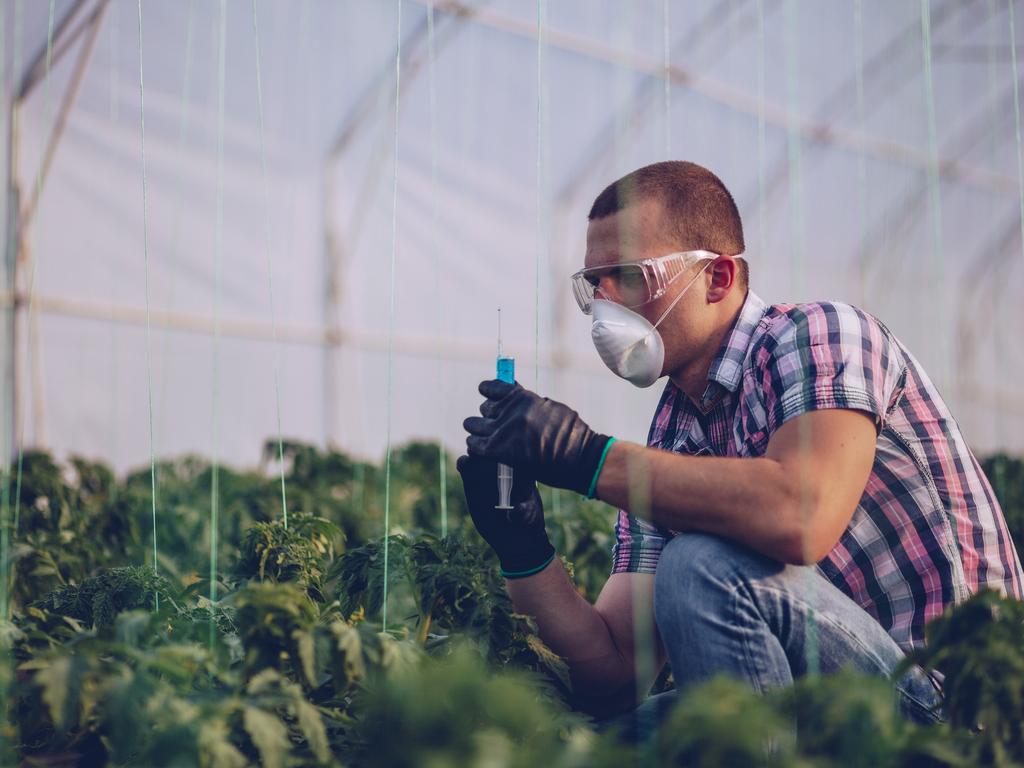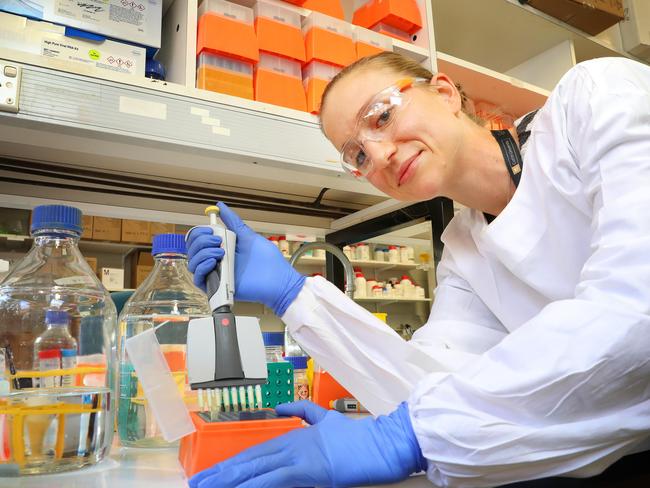National Science Week: coronavirus and climate change attract jobseekers to sector
The science sector is making a comeback, enticing school leavers and jobseekers looking for a career with purpose. See where the work is and how to get a foot in the door.
Coronavirus
Don't miss out on the headlines from Coronavirus. Followed categories will be added to My News.
Scientists have been thrust into the spotlight in recent years – and the past six months especially – as COVID-19 and climate change fill newspapers and social media feeds. The increased appreciation and understanding of what scientists do is generating interest in science careers.
Randstad’s 2020 Employer Brand Research Report reveals the life sciences, medical and pharmacy sector is now the second most attractive employment sector in Australia – topped only by the technology sector.

Randstad strategic account director for life sciences Neil Sinclair says it has become increasingly popular in the past five years, largely because people want a sense of “purpose” in their work. “You can do work in the future that saves lives, and that is more attractive today relative to even six months ago,” he says.
Sinclair says some opportunities within life sciences have grown amid the pandemic, while others have stagnated because of rule changes, such as the temporary pause on non-emergency surgeries.
Between June and July, data from job site SEEK reveals a 9 per cent increase in science and technology jobs – the strongest month-on-month growth of any job category, alongside manufacturing, transport and logistics.
There are about 550 available positions on SEEK now, ranging from laboratory and technical services (140 jobs) to environmental, earth and geosciences (120) to biological and biomedical sciences (50) to mathematics, statistics and information sciences (40).

University of Queensland virologist Dr Kirsty Short says there has been a growing awareness of the role of science over the past five to 10 years.
“There is appreciation in the public that to address the problems of our future – such as pandemics, climate change, energy – we are going to need science,” she says. “It’s really exciting to see the general level of scientific literacy in the population (increasing). I can have a conversation about virology with someone in the street that previously I could only have with a work colleague.”
Short, who is taking part in National Science Week Queensland’s live stream events, is working on a therapeutic treatment for people infected with COVID-19.
“(We want to) get them out of hospital quicker or ensure they don’t go to hospital,” she says. “We’re also doing a lot of work trying to understand the role of children in the pandemic and in the spread of the virus and how their immune response is different and is there something we can learn from that? We’re also interested in understanding how long our immune response to the virus lasts.”

Short is a passionate scientist but very nearly did not take that path.
As both her parents were scientists, she was adamant she would do something different. “I started university doing arts and law, thinking I would go into international relations and diplomacy,” she says.
Convinced by her mother to at least do a little bit of science, she changed to an arts and science dual degree – then stumbled across a microbiology and virology subject while trying to create a timetable that would allow her a day off each week.
“In my first lecture I was hooked,” she says. “It was fascinating that a thing we could not see with our eyes could turn our lives upside down. I had to eat some humble pie and go back to my mother and say ‘turns out you are right, I do want to be a scientist’.”
Short says science careers are not limited to any one type of person – they just need to be curious and passionate.
“There is so much diversity in science and so many skillsets required,” she says. “You will always find a position for someone like yourself.”
Tune into National Science Week Queensland events via inspiringqld.com.au
NUMBER OF SCIENTISTS IN 2019
■ 24,100 Medical laboratory scientists
■ 21,100 Environmental scientists
■ 11,900 Geologists, geophysicists and hydrogeologists
■ 9900 Agricultural and forestry scientists
■ 9300 Chemists, and food and wine scientists
■ 7500 Life scientists, such as botanists, marine biologists and zoologists
Source: Australian Government Labour Market Information Portal
Originally published as National Science Week: coronavirus and climate change attract jobseekers to sector


